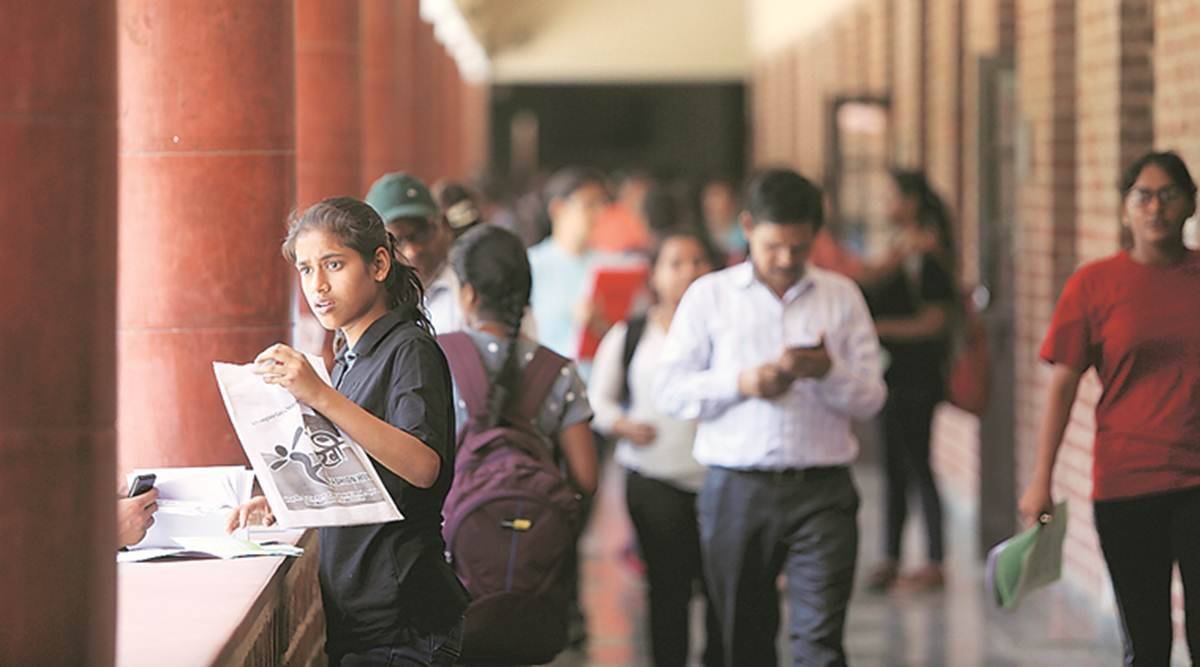The state informed that around 10 lakh students who passed Class X examination and nearly 30,000 students from other boards have registered for the CET to be held on August 21.
The Maharashtra government Wednesday informed the Bombay High Court that it has come up with a suggestion of new “inclusive” evaluation method of conducting common entrance tests (CET) for Class XI or junior college admissions, which will include questions based on SSC syllabus as well as those suggested by the other boards, including CBSE, ICSE, IGCSE and IB among others.
The state informed that around 10 lakh students who passed SSC (Class X) examination and nearly 30,000 students from other boards have registered for the CET to be held on August 21.
A division bench of Justice R D Dhanuka and Justice R I Chagla was hearing a writ petition by ICSE student Ananya Patki of IES Orion School, Dadar, seeking to quash a “discriminatory” May-28 notification of the state government which stated admissions to Class XI will be based on CET, which would be based solely on the syllabus of the SSC board.
On May 28, the Maharashtra government announced that Class X students will be evaluated through an internal assessment formula for the academic year 2020-21. It also said that admissions to Class XI will be conducted physically through optional CET based on Class X SSC syllabus and those unwilling to appear for it will be admitted based on an aggregate of their Class X marks.
On July 28, the high court had asked the Maharashtra government to consider the formation of a committee of all boards to prepare a common question paper for CET.
On Wednesday, Advocate General Ashutosh Kumbhakoni responded that the state government is exploring possibilities about the format of the CET and the court, while passing order in matters concerning with education, should also take into account repercussions on lakhs of students (SSC board students) who are not before the Court and consider their interests.
He informed the bench that after the last hearing, a videoconference meeting was held by Additional Chief Secretary, state school education department with officials of all boards wherein, it was asked to the boards other than Maharashtra SSC to prepare a question bank of over 200 questions together and send it to the state government, which will examine the same.
Kumbhakoni added that on the basis of these questions, the state will “fine tune” to avoid “leaking” of questions. As per the proposed format, the common question paper will be divided into seven groups, out of which the students have to opt for four groups of 25 marks each and the questions will be based on Maharashtra SSC board syllabus as well other boards.
He submitted that the CET would be based on Social Science, Mathematics, English and Science syllabi and the remaining three groups would be decided after the other boards submit their question banks.
Kumbhakoni added that while CBSE board has communicated no-objection to CET in a manner proposed by the state, there is no unanimity among other boards and they have not responded to the state’s suggestion as yet.
“We are running out of time. Even if we hold CET as per the proposed schedule and if the court does not intervene, Class XI admissions will go to October and the academic year will commence thereafter. There should not be any further delay,” he told the court.
Kumbhakoni sought dismissal of the plea and said that CET is required this year as every board could not conduct the Class X examinations and devised a respective mechanism for evaluation of their students and have assigned marks accordingly. He said, “The methodology of every board (of evaluation) is different. There is no commonality. The million-dollar question is, how do we compare these students? There is no common standard with which the merit of everyone has been assessed.”
He added CET was mainly for those students who wanted admissions in sought after colleges. The court then directed the other boards to respond before the next hearing on August 6 as to whether they were agreeable to the state’s suggestions.
Source: Read Full Article


